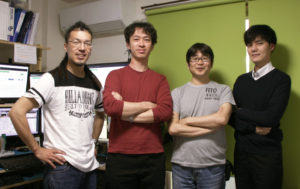Toyota, AI, Robots And A New Challenge
You might recall that back in November, Toyota announced that they would assemble a lab near MIT in Boston, Massachusetts in the United States to put some serious research into artificial intelligence.
They have put a lot into the Toyota Research Institute – a five-year, $1 billion investment entirely devoted to the development of autonomous cars and the artificial intelligence that may run them (and, as a side note, the development of personal assistant robots is also on the list.)
Toyota says that they have aspirations to be a leader in the field. Of course they do. They’re Toyota.
But that’s not really news. Toyota’s been doing that for years. What is news is that Toyota has assembled a team of about 12 members who have experience in computer science, artificial intelligence, cars, and robotics and design for the project.
Toyota decided to strategically open the lab close to MIT – the Massachusetts Institute of Technology. They say it is the center of innovation – they call MIT, “a hotbed of where the kind of work artificial intelligence, particularly applied to transportation is going on,” according to Gill Pratt, director of Toyota Research Institute, Cambridge.
Pratt is a trained roboticist who used to be a program manager for DARPA – the Defense Advanced Research Projects Agency. This is an agency of the U.S. Department of Defense responsible for the development of emerging technologies for use by the United States military. Perhaps uncoincidentally, MIT has been behind a number of those non-civilian technologies.
We all know that Toyota is not the first car company investing in robots.
You know what they are the first ones to do, though? They’re the first ones to invest heavily in home-assistant robots. Robots in factories are nothing new. Honda has robots in factories.
Toyota is doing this because this is what they anticipate that customers will need over the long term.
Toyota recognizes it that the demographics are quickly moving to a large percentage of the population being elderly. They anticipate that by creating these assistant robots, they can help them live a dignified life.
Whether this is true, or whether this is more to do with the Japanese mindset of stifling immigration (which would be the typical first world solution to solving a home-help worker shortage) has yet to be seen.
While other companies are focusing on the mobility of goods, Toyota is focusing on mobility for people and goods – both indoors and out.
Toyota is doing three things. One, they are letting the whole world know that robots are the future. Two, they are completely redefining their mission by focusing on artificial intelligence. If you look in the history of Toyota, they used to make looms before they made cars. So, it’s not a huge leap for Toyota to start developing AI. Third, they recognize that safety remains a challenge.


